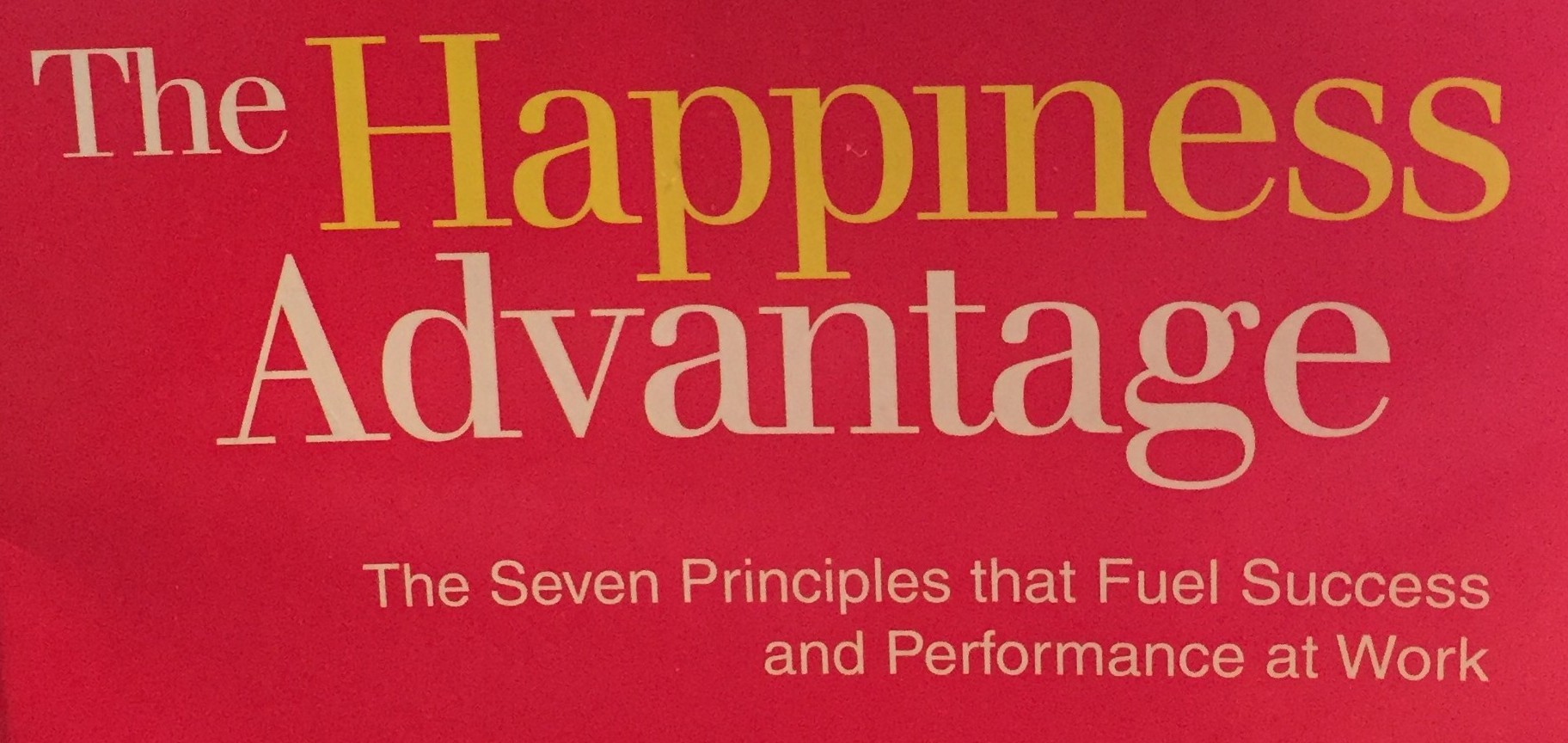
Exactly what "advantages" can The Happiness Advantage bring you? Well, happiness for one. But equally importantly, in my opinion, it can impact those around you.
Using the seven principles together, for "...they are inextricably linked...only enhances their collective power."
Achor writes, "For instance, the Tetris Effect fuels Falling Up, because training ourselves to scan the world for positive can help us reinterpret failures as opportunities for growth. And Social Investment can help us in our quest to master the 20-Second Rule, since strong social support holds us accountable to new habits. Of course, we can also use the 20-Second Rule to improve our Social Investment by decreasing the activation energy required to form high-quality connections at work."
So to review:
Principle #1 The Happiness Advantage
-Happiness comes BEFORE success
Principle #2 The Fulcrum and the Lever
-The lever, how much potential you believe you have, and the fulcrum, the mindset you use to generate and position that power, are in YOUR control. It's the way you see the world and the opportunities within it.
Principle #3 The Tetris Effect
-We are rewarded in our society for recognizing and pointing out problems. In other words, our brains' spam filters are set to only look for the negative. Change that spam filter. Every night before bed, write down three positive things that happened to you or three things you are grateful for. Change the filter. Change your "luck."
Principle #4 Falling Up
-Simply put, this is the ability to move up not IN SPITE of the setbacks, but BECAUSE of the setbacks. Using our veterans as examples- before they leave for war they are told they could come back normal (option 1) or come back with PTSD (option 2). But what about all of the guys that come back and use their experience to affect others around them in positive ways? How about Post Traumatic Growth (option 3)? When presented with option 1 and option 2, look for option 3. It's probably the best one.
Principle #5 The Zorro Circle
-Narrow the scope of your fight. Fight within that circle. Conquer that circle. Then make it bigger. "You can't sprint your way to a marathon."
Principle #6 The 20-Second Rule
-Turn bad habits into good ones by minimizing barriers to change. Relying on willpower does not work. It's not a muscle. It will not get stronger the more you rely on it. Want to read more? Take the batteries out of the remote. Want to clean up your diet? Get all of that garbage food out of your house, buy your groceries for the week or the month, and then prepare your meals ahead of time. Want to get up early and go to the gym? Sleep in your gym clothes and leave your shoes at the foot of your bed.
Principle #7 Social Investment
-When times get tough, hold on tighter to those around you. There are studies that show, indisputably, that the stronger peoples' social networks are, the happier they are. And the happier you are, the more successful you will be.
Spread the love. Spread the happiness. All of this is contagious and science has proven that. Our brain is filled with 'mirror neurons.' They are specialized brain cells that "...mimic the feelings, actions, and sensations of another person. Let's say a person is pricked by a needle. The neurons in the pain center of his or her brain will immediately light up, which should come as no surprise. But what IS a surprise is that when that same person sees someone else receive a needle prick, this same set of neurons lights up, just as though he himself had been pricked. In other words, he actually fees a hint of the pain...If this sounds incredible, believe me when I tell you it has been replicated in countless other experiments involving sensations that range from pain to fear to happiness to disgust."
Long story short, we are all connected. So don't be an asshole. Go spread some love. And practice this stuff.
Kaizen--constant, never ending, daily improvement.









1 Comment